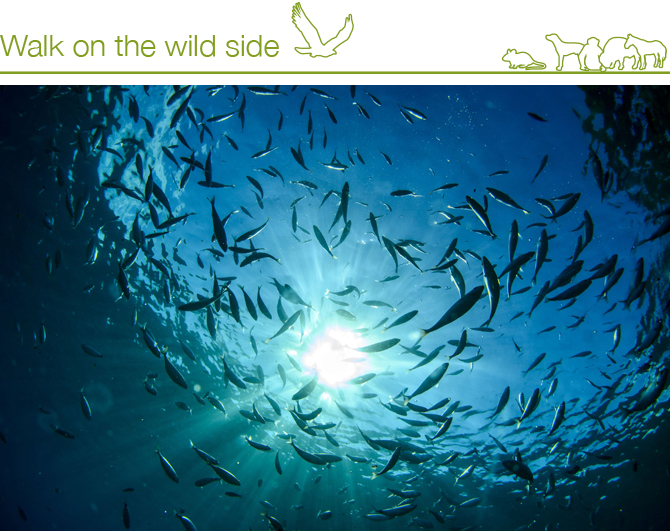
Threatened species that lose our attention
Do we care only about endangered species that are cute, cool or charismatic? The fact that many sea creatures face extinction has been overlooked or forgotten.
Compared to land animals, threatened fish and marine animals have a problem getting our attention, says Susanna Lidström, literary researcher at KTH.
Lidström's current project is studying how marine scientists are using popular books to focus our attention on the ocean's crucial issues — endangered species, rising sea levels and climate change. And even if these issues have gotten a boost in recent years, they're a long way from gaining sufficient political influence with policymakers and the public, she says.
"To take an example, time and time again we see how decision making goes against scientific advice about overfishing, probably because pressure from the fishing industry is not countered by public demand for greater protection of fish species," Lidström says.
Most people are far removed, figuratively and literally, from sea life. We don't share a living environment, and there are major biological differences between land and sea creatures. And it is difficult to notice changes in the ocean in the same way that we do on land.
"Even on land, it is a fact that some species — almost always so-called charismatic mammals — win the sympathy of the public in a completely different way than the more inconspicuous animals, although they also play very important roles in different ecosystems. The sea reinforces the problem," she says.
And so it is perhaps not surprising we accept cruel trapping methods and confinement of fish in small aquariums, and never protest against overfishing, she explains.
Part of the problem, Lidström says, is a lack of stories capable of arousing our empathy for an animal species so different from ourselves. Those in marine research find it difficult to "translate" their work into a human story.
"Fish are the most obvious example. Many species are threatened and fish stocks are collapsing, but the terms we use to discuss it — such as 'stocks' — are so impersonal. Stories about fish are not told in the same way we are told about endangered land species — in a way that people can relate to."
According to Lidström, the scientific community needs to bring more emotions and values in the discussion. In other words, the scientific approach needs to be complemented with a humanistic and social scientific approach in order to gain traction.
"Many marine biologists are trying to really drive home their message," she says. "They do what they can, but it's not enough. More needs to be done to highlight their message."
Lidström wants to focus on the complex factors that influence public opinion regarding the marine environment. She believes that her own research area, ecocriticism, has much to contribute.
"We study how different stories about the environment and nature affect our views on sustainable development — which values and beliefs contribute to the different positions we arrive at.
She highlights the book "Silent Sea" by Isabella Lövin, Sweden's Minister for International Development Cooperation and a former journalist and author, as a successful example of capturing the complexity of the issue of fisheries.
"She (Lövin) states that although we find it hard to feel spontaneous sympathy for fish, we still need to be open to raising ethical issues in the discussion about their habitats and treatment," Lidström says. "She follows the thread about the rights issue around the fishing industry, which isn't just about fairness between fish and people but between people as well: who will have priority to fish and why?
Christer Gummeson